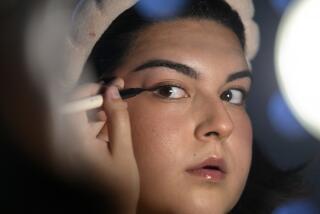‘Ratatouille: The TikTok Musical’ served up $2 million for COVID-19 relief
Remy, the ratatouille, the fundraiser of all our dreams.
Not two weeks after TikTok’s highly anticipated “Ratatouille” musical premiered, the Actors Fund has announced that the homegrown virtual show raised a whopping $2 million in ticket sales for COVID-19 relief.
“We’re overwhelmed with gratitude for everyone who joined the @ratatousical family & shared their support for our work helping those in need in the #PerformingArts!” the Actors Fund posted Tuesday on Twitter. “Look what we were able to do, together!”
The organization, which has ramped up its aid for the entertainment community after theaters went dark amid the pandemic, also revealed that the production drew approximately 350,000 viewers over its 72-hour run — “and one encore” performance — on TodayTix. Tickets for the charitable event started at $5.
Inspired by Pixar’s hit 2007 film about a little rodent chef, “Ratatouille: The TikTok Musical,” was conceived by a band of clever TikTok users who over the summer composed music and cooked up choreography, as well as an official playbill, costumes and sets, for a full-on stage adaptation of the beloved Disney title.
In December, Broadway company Seaview Productions announced plans to turn the TikTok phenomenon into a real theatrical event, starring “Unbreakable Kimmy Schmidt” actor Tituss Burgess as Remy the lead rat. Other names in the show’s star-studded cast included Wayne Brady, Ashley Park, André De Shields, Kevin Chamberlin and Adam Lambert.
“Ratatouille: The TikTok Musical” proves an amazing experiment — a case study in how young talent can bypass industry gatekeepers and get heard.
A month later, “Ratatouille: The TikTok Musical” premiered in all its fan-made glory on New Year’s Day — to rave reception from The Times’Ashley Lee, who called the Gen Z experiment and its infectious showtunes a “winning combination on which the most established composers have built their careers.”
“Without any slick sets, naturalistic props or costars even in the same room, their playful performances were still so inventive and full of story — theater, at its core,” Lee wrote.
“This ragtag aesthetic may not be for everyone — why do only some actors playing rat characters wear ears? — but its free and easy spirit ultimately worked for me.”
More to Read
The biggest entertainment stories
Get our big stories about Hollywood, film, television, music, arts, culture and more right in your inbox as soon as they publish.
You may occasionally receive promotional content from the Los Angeles Times.











